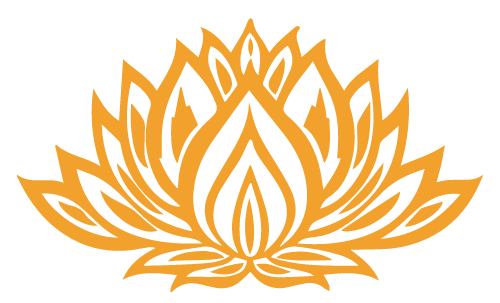DEATHWALKER'S GUIDE TO LIFE SEASON 2
EPISODE 4
Natural Death & Burial
Pictured above: Close-up of autumn leaves in wet dirt. Original public domain image from Wikimedia Commons.
JUNE 5, 2022
EPISODE 4
Natural Death & Burial
Death in Print: Wild Darkness by Eva Saulitis, Meet: Natural burial pioneer Dawn Jones and her daughter Sylvia Bauer Death on Screen: NZ Natural Burial directory
Listen to Episode 4 on the following podcast platforms
Or, if you've already listened to the show, scroll down for more info and links . . .
DEATH IN PRINT
Wild Darkness by Eva Saulitis




'Wild Darkness: In nature, death is not defeat', by Eva Saulitis, which was published in the March/April 2014 edition of Orion Magazine, is a stunning essay by Alaskan writer and marine biologist Eva Saulitis.
The essay opens with Saulitis writing about wild salmon who return upstream to their own birthplace to spawn and then die. Even though she is a whale expert and not a salmon expert, Saulitis and her partner made frequent hiking trips in Prince William Sound in the Gulf of Alaska.
‘Hikes are our sanity,’ she writes. ‘We hike because we love this rainy, lush, turbulent, breathing, expiring, windy place as much as we love our work with whales.’
But her 26th field trip is different to every trip before. This time, she is witnessing the salmon through different eyes, the eyes of someone whose own demise is no longer an abstraction. Saulitis has just learned that her breast cancer has returned and spread to her right lung. It’s incurable.
Her time in hospital, she writes, taught her that certain experiences cut us off entirely from nature, or seem to. She knows that as long as we inhabit bodies of flesh, blood, and bone, were are wholly inside nature. But her time in hospital taught her to fear something more than death (and I quote): ‘an existence that depends upon technology, machines, sterile procedures, hoses, pumps, chemicals easing out one kind of pain only to fee a psychic other.’
Then she begins to sense, then hope, then trust that when the time comes, her body will know exactly what to do.
She writes: ‘I envied those salmon their raw deaths, not for a moment separated by nature.’
Later in the essay, after agreeing with Bill McKibben’s thesis in his seminal 1989 book, The End of Nature, that nothing on earth is apart from human tinkering, she writes: ‘My greatest fear is a variation of McKibben’s revelation: that the end of nature means the end of natural death, the end of a natural return to earthly elements.’
Eve Saulitis died two years after its publication, in 2016. Her obituary reads: ‘Renowned Alaskan writer and marine biologist, Eva Lucia Saulitis, age 52, was carried into her beloved eternal wilderness on the spirited wings of dear friend and mentor Celia Hunter's dogsled, in the early afternoon of Saturday, January 16, 2016 from her home in Homer, Alaska.’
It’s unclear whether the dogsled was physical or metaphorical but, given the subject of her essay, it was no surprise to learn that she played a key role in planning for the disposal of her body, including weaving her own casket with her family.
During her life, Saulitis also published five books. Her final book, Becoming Earth, grew out of the 'Wild Darkness' essay, and was published posthumously in 2016, although a few advance copies arrived just before she died. In the book, according to the publisher’s blurb, Saulitis revels in the nostalgia and secret pleasures that come from knowing life is fleeting.
The essay opens with Saulitis writing about wild salmon who return upstream to their own birthplace to spawn and then die. Even though she is a whale expert and not a salmon expert, Saulitis and her partner made frequent hiking trips in Prince William Sound in the Gulf of Alaska.
‘Hikes are our sanity,’ she writes. ‘We hike because we love this rainy, lush, turbulent, breathing, expiring, windy place as much as we love our work with whales.’
But her 26th field trip is different to every trip before. This time, she is witnessing the salmon through different eyes, the eyes of someone whose own demise is no longer an abstraction. Saulitis has just learned that her breast cancer has returned and spread to her right lung. It’s incurable.
Her time in hospital, she writes, taught her that certain experiences cut us off entirely from nature, or seem to. She knows that as long as we inhabit bodies of flesh, blood, and bone, were are wholly inside nature. But her time in hospital taught her to fear something more than death (and I quote): ‘an existence that depends upon technology, machines, sterile procedures, hoses, pumps, chemicals easing out one kind of pain only to fee a psychic other.’
Then she begins to sense, then hope, then trust that when the time comes, her body will know exactly what to do.
She writes: ‘I envied those salmon their raw deaths, not for a moment separated by nature.’
Later in the essay, after agreeing with Bill McKibben’s thesis in his seminal 1989 book, The End of Nature, that nothing on earth is apart from human tinkering, she writes: ‘My greatest fear is a variation of McKibben’s revelation: that the end of nature means the end of natural death, the end of a natural return to earthly elements.’
Eve Saulitis died two years after its publication, in 2016. Her obituary reads: ‘Renowned Alaskan writer and marine biologist, Eva Lucia Saulitis, age 52, was carried into her beloved eternal wilderness on the spirited wings of dear friend and mentor Celia Hunter's dogsled, in the early afternoon of Saturday, January 16, 2016 from her home in Homer, Alaska.’
It’s unclear whether the dogsled was physical or metaphorical but, given the subject of her essay, it was no surprise to learn that she played a key role in planning for the disposal of her body, including weaving her own casket with her family.
During her life, Saulitis also published five books. Her final book, Becoming Earth, grew out of the 'Wild Darkness' essay, and was published posthumously in 2016, although a few advance copies arrived just before she died. In the book, according to the publisher’s blurb, Saulitis revels in the nostalgia and secret pleasures that come from knowing life is fleeting.
FOR MORE INFORMATION ABOUT EVA SAULITIS AND HER BOOKS
Read Wild Darkness here.
Find out more about Becoming Earth here.
Find out more about Into Great Silence.
Read Wild Darkness here.
Find out more about Becoming Earth here.
Find out more about Into Great Silence.
KŌRERO / CONVERSATION
Meet Dawn Jones and Sylvia Bauer

Around the eighth anniversary of Emery Jones’ death and burial at the Motueka Natural Burial Park, his widow Dawn Jones (92) and youngest daughter Sylvia Bauer (47) joined Kerry Sunderland to discuss the concept of a ’natural death’ and how family can be involved in natural burial.
Sylvia and Dawn Jones, along with about 15 others, recently gathered for the annual Motueka natural burial park get-together, gardening bee, celebration of life and potluck picnic lunch. Sylvia and Dawn have organised this annual celebration since Emery Jones's burial there in 2014.
Sylvia and Dawn Jones, along with about 15 others, recently gathered for the annual Motueka natural burial park get-together, gardening bee, celebration of life and potluck picnic lunch. Sylvia and Dawn have organised this annual celebration since Emery Jones's burial there in 2014.
FOR MORE INFORMATION ABOUT MOTUEKA NATURAL BURIAL PARK
'Natural burials get the go ahead', Stuff, 13 Jan 2010.
The rise of the natural burial, RNZ, 12 Oct 2018.
'Natural burials get the go ahead', Stuff, 13 Jan 2010.
The rise of the natural burial, RNZ, 12 Oct 2018.
DEATH ON SCREEN
NZ Natural Burials website
In Aotearoa New Zealand, there is a national directory of natural burial grounds available at https://www.naturalburials.co.nz/
If you’re listening in Australia, unfortunately there doesn’t appear to be an equivalent national directory although there are various somewhat incomplete state directories. The best place to start would be by checking out the Natural Death Care Centre’s service directory at https://www.naturaldeathcarecentre.org/
If you’re listening in Australia, unfortunately there doesn’t appear to be an equivalent national directory although there are various somewhat incomplete state directories. The best place to start would be by checking out the Natural Death Care Centre’s service directory at https://www.naturaldeathcarecentre.org/
Listen to previous Season 2 episodes
OUT APRIL 24, 2022
EPISODE 1
Death in Print: Death and its Terrible, Horrible, No Good, Very Beautiful Lessons by Becky Aud-Jennison, Meet: Deathwalker and author Becky Aud-Jennison, Death on Screen: 'Good Grief'
OUT MAY 8, 2022
EPISODE 2
Death in Print: What Days Are For by Robert Dessaix, Meet: Septuagenerian climate activist Bill McEwan, Death on Screen: Nelson Poetry Map featuring Bill Manhire's poem, 'Kevin'
OUT MAY 22, 2022
EPISODE 4
Death in Print: An Hour to Live, An Hour to Love by Richard Carlson, Meet: Storyteller Tanya Batt, Death on Screen: Imagined Worlds website
Catch up on Season 1 episodes
OUT OCTOBER 3, 2021
EPISODE 2
Death in Print: Before You Knew My Name, Meet: author Jacqueline Bublitz, Death on Screen: 'Dead to Me'
OUT OCTOBER 17, 2021
EPISODE 3
Death in Print: Listen: How to Find the Words for Tender Conversations, Meet: author Kathryn Mannix, Death on Screen: 'Phone of the Wind'
OUT OCTOBER 31, 2021
EPISODE 4
Death in Print: No Pressure, No Diamonds, Meet: legal executive Marie Austin, Death on Screen: 'I Told You I Was Ill: the Life & Legacy of Spike Milligan'
OUT OCTOBER 31, 2021
EPISODE 4
Death in Print: No Pressure, No Diamonds by Teri Dillion, Meet: legal executive Marie Austin, Death on Screen: 'I Told You I Was Ill: The Life and Legacy of Spike Milligan'
OUT NOVEMBER 14, 2021
EPISODE 5
Death in Print: H is for Hawk by Helen Macdonald, Meet: poet & playwright Donna McLeod, Death on Screen: 'Living with Ghosts'
OUT NOVEMBER 28, 2021
EPISODE 6
Death in Print: Mortals: How the Fear of Death Shaped Human Society by Rachel & Ross Menzies, Meet: psychologist and author Rachel Menzies, Death on Screen: Lisel Mueller on 'The Marginalian'
OUT DECEMBER 12, 2021
EPISODE 7
Death in Print: No One is Talking About This by Patricia Lockwood, Meet: author Bonnie Etherington, Death on Screen: 'My Beautiful Broken Brain'








